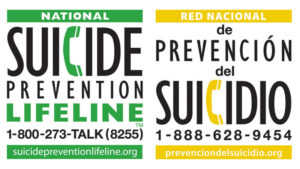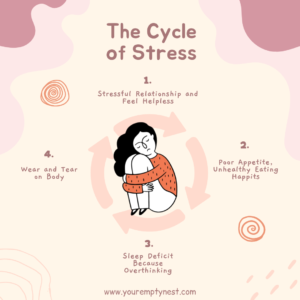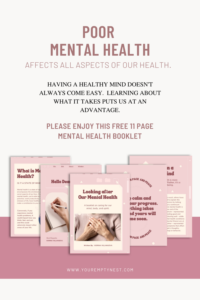5 Emotions Triggered by Crisis
We are all struggling to deal with our emotions after a crisis.
Going through any kind of crisis can trigger lots of different emotions. And it’s totally normal. Dealing with the way they affect us can be the hard part. Here, we’ll look at 5 emotions that are most commonly triggered by a crisis. And understanding how emotions respond to a crisis can help to identify and combat them.

What are the common emotions triggered by a crisis?
The main emotions that are triggered by a crisis include:
- Fear,
- Anxiety,
- Depression,
- Anger, and
- Guilt.
There are lots of other emotions that can be triggered by a crisis, but the above are some of the most common.

Fear is an especially powerful emotion.
It can be difficult to deal with. During times of uncertainty, it’s easy to let fear creep in. Most fear is actually based on false or unrealistic threats. Our mind comes up with all kinds of scenarios that might happen.
Anxiety and symptoms of depression are also common.

For those who already experience anxiety, the feelings can get worse in a crisis. We can find ourselves dealing with more generalized anxiety. And in severe cases, suffer anxiety attacks. Anxiety attacks can be totally debilitating.
Crisis may even trigger migraine headaches. Medical attention is required if the headaches last a long period of time.
There may be days when depression takes over.

This can make us feel unable to even get out of bed in the morning. Anxiety and depression combined is a messy combination. It is totally understandable to feel anxious while you are in crisis. Crisis does trigger emotions that are hard for us to handle sometimes.
Take a big breath and let it out slowly. Breathe in from your nose for the count of 5. Hold the breath for the count of 6 and let it out through your lips for the count of 7. It is a good way to reset.
Anger can also play a role.
You may become angry at the situation and your lack of control. If the crisis has led to a loss of human life, you may also feel guilty that you survived, and others didn’t. Since anger is one of the steps of grieving, it is not only common, but almost expected.

We may develop PTSD if we are in the middle of a crisis.
For those who suffer with PTSD, it can also cause the symptoms of the condition to worsen. Sounds or sudden movement can trigger emotional reactions. Just thinking about the situation can cause us to swell up with emotions. You can find yourself gasping, holding your breath or even crying.
These are just some of the emotions you can experience when you’re dealing with a crisis.
It’s important to understand how your emotions are affected during a time of crisis. That way, you’ll be able to recognize the signs and focus on ways to avoid emotional triggers.
Recognizing the signs of emotional distress:
It is important to recognize the signs of emotional distress. And avoid letting emotional distress control our life during a crisis. Most emotional responses during a crisis are temporary. But, in some cases they can last months and impact our life.

So, what are the signs of emotional distress in a crisis?
- We may find that we are eating more or less than usual.
- Our sleep patterns can get disrupted.
- You may find it harder to fall asleep, or you may have trouble staying asleep.
- This leads to excessive tiredness throughout the day.
- You may also find that you distance yourself from others.
- and have very little energy.

- It’s also common to lose interest in the things you usually enjoy.
- You could suffer bursts of crying and mood swings.
A proactive way to deal with these emotional times is Journaling. I have a Journaling guide for beginners. Download this and I will email a matching journal to get you started.

All these are signs of emotional distress. But sometimes, the signs are in our body too.

- We can experience aches and pains and headaches.
- We can feel sick to our stomach, vomit,
- and have diarrhea also. It is not uncommon.
How different types of crisis trigger emotions:
A crisis is often viewed as a sudden disaster. This could include a car accident, natural disaster or a virus pandemic. The recent mass shootings are sudden disasters too. Yet, there are different types of crisis you can experience and not all of them are sudden disasters. We find ourselves second guessing ourselves. Did we do something to cause this to happen or did we not do something to prevent it?
A developmental crisis can occur at any time during your development.
It could be an incident that happens at school, or a case of mistreatment by a caregiver. Physical abuse and sexual abuse are developmental crisis too. Any situation when we feel like we can not defend ourselves against mistreatment or abuse, we can be triggered. All the emotions of fear, anxiety, and panic set in.

A crisis caused by a sudden disaster is a situational crisis.
It can be the war in Ukraine for example. And the mass shootings around the country. Inflation, high gas prices, and the formula shortage can even be a situational crisis. We can feel emotions of fear, sorrow, and grief. Inflation and high gas prices trigger feelings of defeat.
Then finally, there’s the existential crisis, which occurs due to inner conflicts.

A midlife crisis is a great example here. Lying and hiding things from your spouse trigger inner conflicts. It is because of existential anxiety. We will delve into this subject in a different post. Needless to say, a lot of emotions are triggered by existential crises.
Dr. Mark Rego from Psycology Today had this to say about what he has seen in crisis.
“The four common occurrences I most often see people struggle with are major medical illness, infertility and miscarriage, divorce, and unemployment. Each is a major life event that in many cases also becomes an emotional crisis.” Mark Rego, MD
These were the most common emotions triggered by crisis.
Often, it is the emotional impact that is the most difficult to deal with. But, understanding your emotions during a crisis can help to identify ways to handle them.

This is a booklet is called Looking After Our Mental Health. Click on the picture now. It may help to explain more of the way our brain works under pressure. And some common reactions to that pressure. It is a digital download and there is no charge. Make as many copies that you need.
Your input in this conversation is welcomed. If you have something to share with us, please do. You can leave a comment below, or contact us via email. Smiles, Beth

Recent Comments